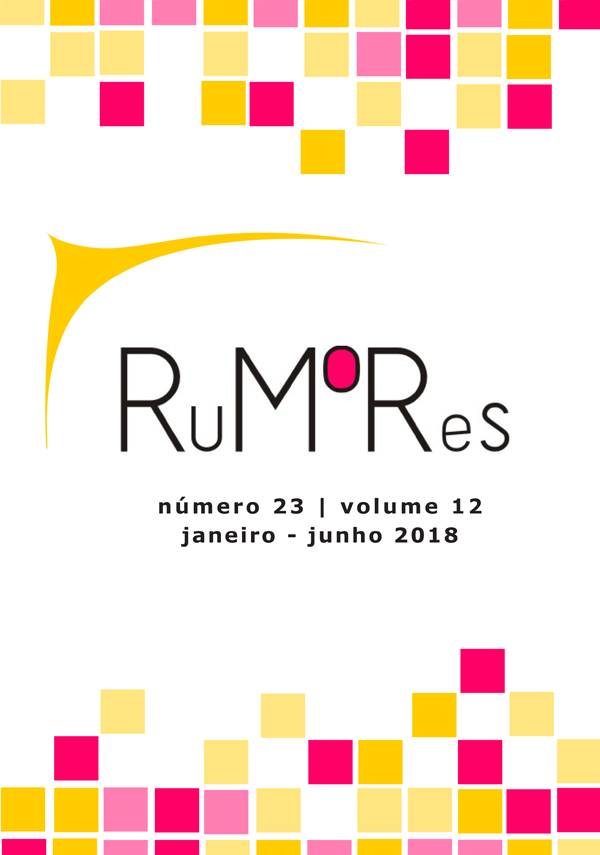Changes and actuality of the critical theory
DOI:
https://doi.org/10.11606/issn.1982-677X.rum.2018.145032Keywords:
Critical theory, Frankfurt School, media criticism, theoretical matrixes, communication studiesAbstract
This article approaches media criticism considering a broader theoretical foundation, which is related to the critical appreciation of the roles and functions of different media keeping in the horizon a communicative practice concerned with the common good. The standard this criticism is the relationship and responsibility of the media with the common good and with social justice. Such theoretical framework, known as Critical Theory, plays an important role in promoting good critical work in the specifics of the activity – criticism over goods, programs and content. The tradition of the Critical Theory is revised in this study through approximations and revisiting of references in a cyclical movement that creates dialogue and transformation. Our argument is organized in four topics: a brief discussion on what is Critical Theory and its two most important frameworks; the critique and shift of such frameworks; signals of a third new moment (the revisiting); and the influence of the Critical Theory in Communication studies.
Downloads
References
ADORNO, Theodor, HORKHEIMER, Max. A indústria cultural. O iluminismo como mistificação das massas. In: COSTA LIMA, Luiz (org.). Teoria da Cultura de Massa. Rio de Janeiro: Paz e Terra, 1990. 3a ed.
BOLTANSKI, Luc. Sociologie critique et sociologie de la critique. Politix. Revue des Sciences Sociales du Politique, no 10-11, p. 124-134, 1990. Capturada em ttps://www.persee.fr/doc/polix_0295-2319_1990_num_3_10_2129.
_____ . Situation de la critique. In: FRÈRE, Bruno (org.). Le tournat de la théorie critique. Paris: Desclée de Brouwer, 2015.
FRÈRE, Bruno (org.). Le tournat de la théorie critique. Paris: Desclée de Brouwer, 2015.
_____. La relance de la critique. In: FRÈRE, Bruno (org.). Le tournat de la théorie critique. Paris: Desclée de Brouwer, 2015.
GENARD, Jean-Louis. Sociologie critique, sociologie morale. In: FRÈRE, Bruno (org.). Le tournat de la théorie critique. Paris: Desclée de Brouwer, 2015.
LAVILLE, Jean-Louis. La Théorie Critique: de l’impasse au renouveau. Ecoles de Frankfourt, sociologies pragmatique et publique, épistémologies du Sud. In: FRÈRE, Bruno (org.). Le tournat de la théorie critique. Paris: Desclée de Brouwer, 2015.
MARCUSE, Herbert. Ideologia da sociedade industrial. Rio de Janeiro: Zahar, 1967.
SUSEN, Simon. Une réconciliation entre Pierre Bourdieu et Luc Boltanski est-elle possible? Pour un dialogue entre la sociologie critique et la sociologie pragmatique de la critique. In: FRÈRE, Bruno (org.). Le tournat de la théorie critique. Paris: Desclée de Brouwer, 2015.
Downloads
Published
Issue
Section
License
Declaro a total e irrestrita cessão de direitos autorais sobre o texto enviado para publicação na Rumores – Revista Online de Comunicação, Linguagem e Mídias. Entendo que o conteúdo do artigo é de minha inteira responsabilidade, inclusive cabendo a mim a apresentação de permissão para uso de imagens, ilustrações, tabelas, gráficos de terceiros que, porventura, venham a integrá-lo.









